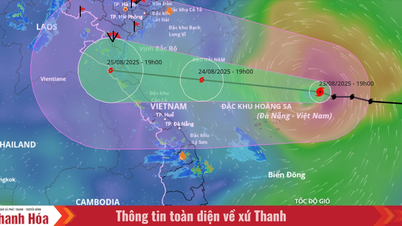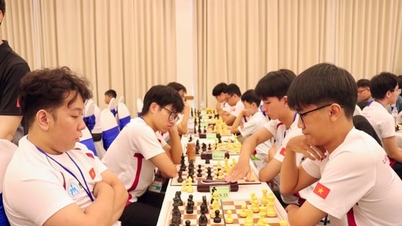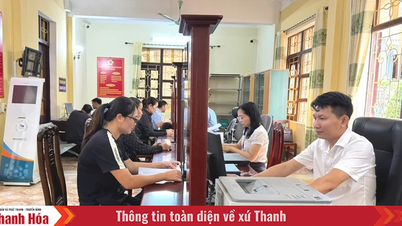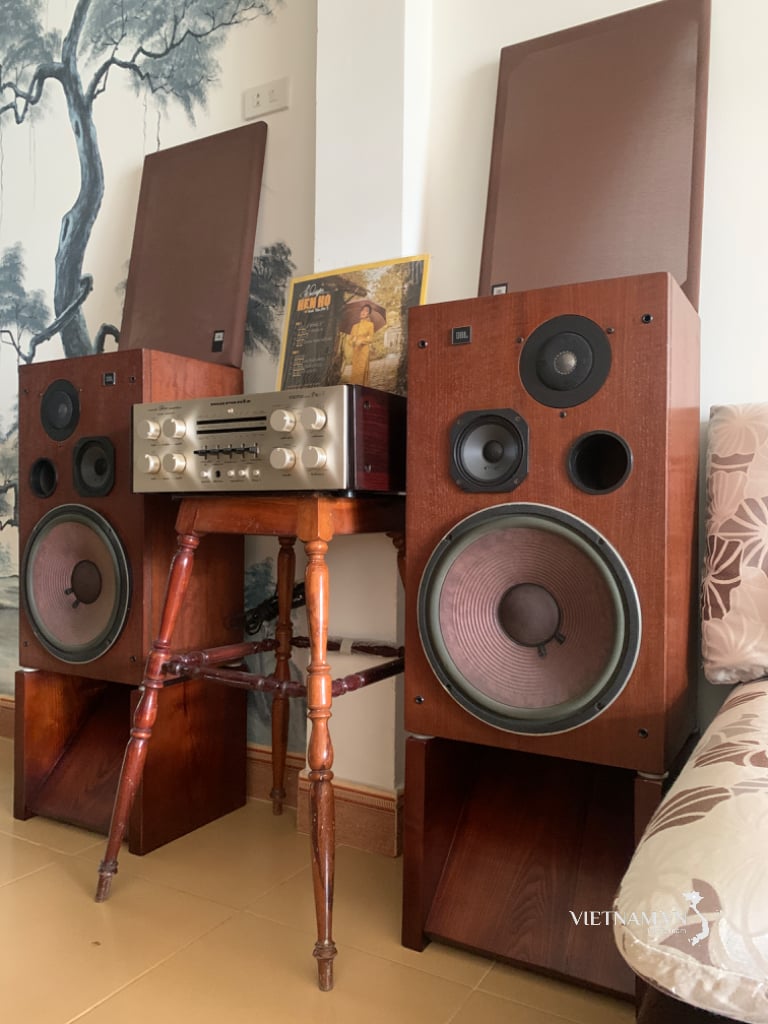Many young people go online to read educational and entertaining books.
Vu's story is not an exception but has become a common phenomenon among today's young generation. Similarly, Nguyen Van Binh, a student at Quang Xuong I High School, admitted: "No matter where I study, work or go out, I always check my phone to see if there are any notifications or if there is anything "hot" on social networks. I'm very shy about reading books, if I want to read a "hot" book, I just go online to find out and read the summary."
According to statistics from the Ministry of Information and Communications (now the Ministry of Culture, Sports and Tourism), about 30% of Vietnamese people read books regularly, 26% do not read books and 44% read books occasionally. In particular, the average time spent reading books by Vietnamese people is only about 20 minutes per year, of which the youth account for a very low percentage.
A recent study by the Youth Research Institute (Central Youth Union) on the situation of Vietnamese youth in 2024, published by the People's Army newspaper, has outlined a clear picture of young people's internet usage habits. When asked about the purpose, the majority answered that it was for entertainment (75.4%), learning and searching for information (71%), communicating and making friends (65.9%), and updating news (63.5%). Meanwhile, the activities that young people love most on smartphones are focused on reading news on Facebook, listening to music online, texting with friends and watching videos on YouTube and Netflix. Compared to these multimedia and instant experiences, reading books has become a much less attractive option.
Part of the reason comes from the fact that young people have to spend too much time studying, which limits their need for entertainment, including reading. On the other hand, in the present era, the culture of listening and watching is overwhelming the reading culture of the community in general and young people in particular. The reading of young people today is almost only a trend, not a real thing. When they do read, they often choose romance novels for entertainment, which greatly limits their knowledge and social awareness.
However, not all young people “hate” reading books, but there are young people who have changed their approach, from paper books to mobile versions. Convenient devices allow this group to read in any situation, location or time, easily choose their favorite book or change according to their feelings without having to carry heavy things. Le Van Oanh, in Hac Thanh ward, is a second-year student at the University of Law, shared: "For students like me, buying enough textbooks is a big burden. Therefore, I often look for online documents to study, and take the opportunity to read web stories to relieve stress after stressful study hours."
Realizing this situation, many families have begun to change their approach. Ms. Le Huong, Minh Vu's mother, shared: "At first, I forced my child to read paper books like when I was a student. But later, every time there were good books or educational and entertaining series like Harry Potter, Doraemon... I encouraged my child to go online to read. The important thing is the useful content, not necessarily paper books."
Through research, we learned that many schools are also making positive changes. Ms. Pham Oanh, a literature teacher at a high school, shared: "Instead of forcing students to read and write their feelings in the traditional way, I let them choose their favorite books, read them online, then make review clips, write blogs... about the characters in the book. As a result, they are much more interested and have a deeper understanding of the content". From a technological perspective, reading applications are also being improved to suit young people, such as: Waka, Voiz FM... have integrated the reading feature with sound, allowing users to read and listen at the same time, creating a multi-sensory experience. Some applications also have the feature of accumulating points when finishing a book, daily reading challenges, and rankings of the most readers in the month. This makes reading more interesting, like playing a game, suitable for the psychology of young people.
However, to truly change the reading culture of young people, the whole society needs to join hands. Many experts affirm that the current state of laziness in reading is the result of a lack of interest in and nurturing the habit of reading from a young age. Families need to create a reading environment from a young age by setting an example, creating a comfortable reading space, taking their children to libraries and bookstores regularly, and at the same time controlling the time spent using electronic devices in a reasonable manner. Schools need to innovate their teaching methods, create official reading sessions, organize creative reading promotion activities, and build modern digital libraries to attract students. Publishers and authors also need to innovate content and form: create books with content suitable for young people, use familiar and easy-to-understand language, combine vivid images and graphics, and publish both paper and electronic versions in parallel. In particular, it is necessary to develop more talking books and audiobooks to meet the needs of young people who do not have much time but still want to improve their knowledge.
Ms. Pham Oanh, with many years of experience teaching literature, commented: "The reading culture of young people is changing, not disappearing. Instead of trying to return to the past, let's take advantage of technology as a support tool, maintaining the nature of reading as developing thinking and understanding. Only when we create a strong enough "push" from family, school and the whole society, can we form a "reading society" as desired. The digital age is not the enemy of reading culture, but can become a companion if we know how to take advantage of it wisely."
Article and photos: Le Nhan
Source: https://baothanhhoa.vn/ngam-ve-van-hoa-doc-cua-gioi-tre-hien-nay-257500.htm





![[Photo] General Secretary To Lam attends the 80th Anniversary of the Cultural Sector's Traditional Day](https://vphoto.vietnam.vn/thumb/1200x675/vietnam/resource/IMAGE/2025/8/23/7a88e6b58502490aa153adf8f0eec2b2)

![[Photo] Prime Minister Pham Minh Chinh chairs the meeting of the Government Party Committee Standing Committee](https://vphoto.vietnam.vn/thumb/1200x675/vietnam/resource/IMAGE/2025/8/23/8e94aa3d26424d1ab1528c3e4bbacc45)


































































































Comment (0)